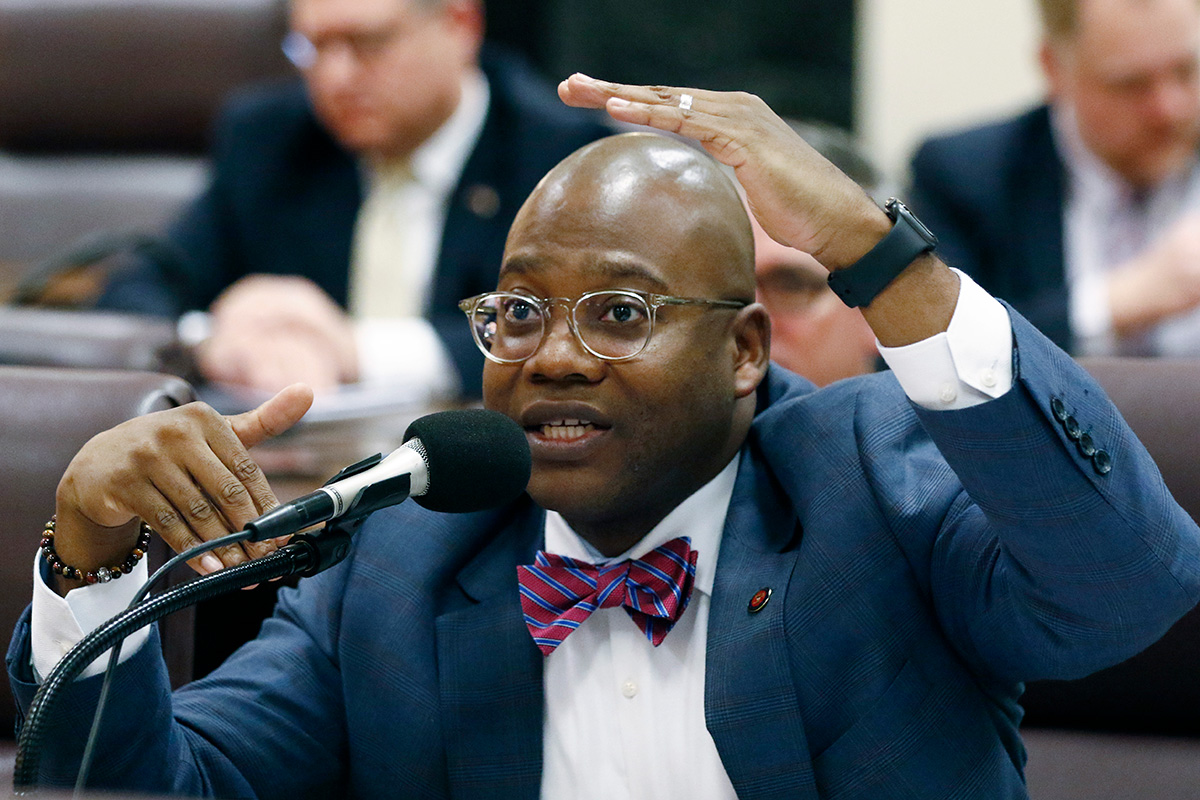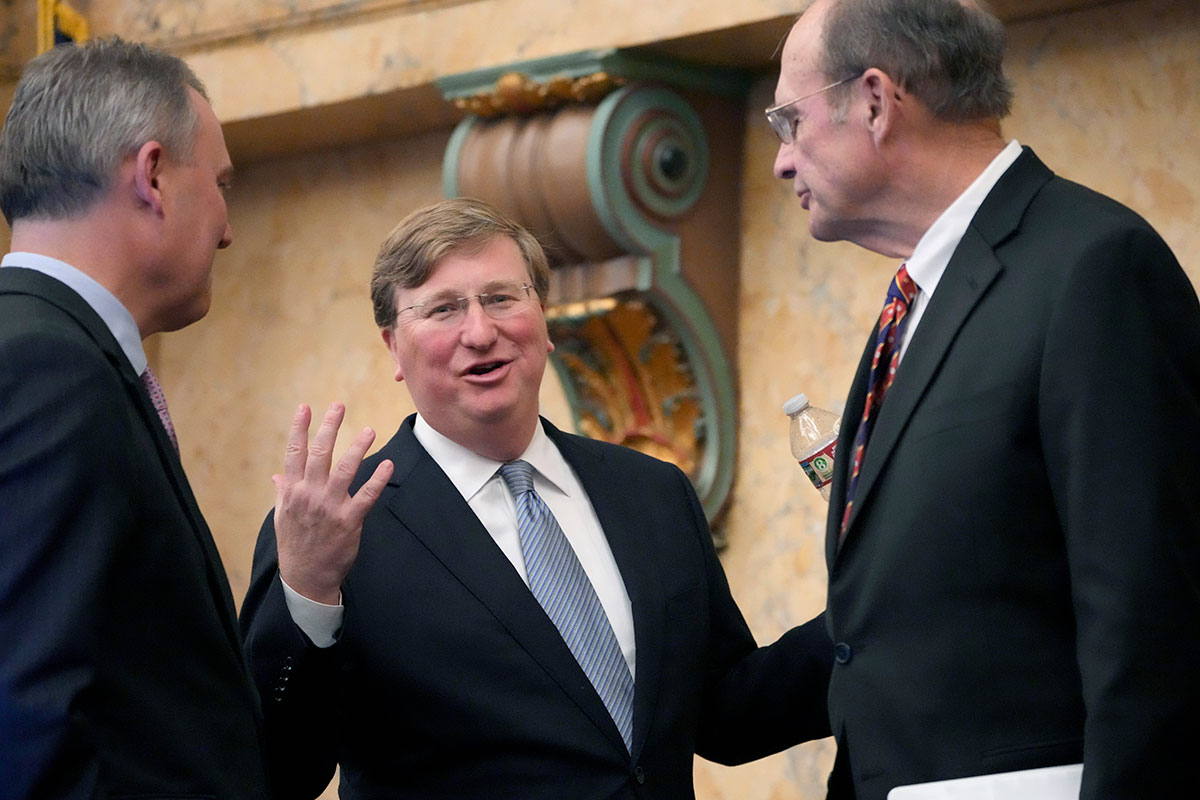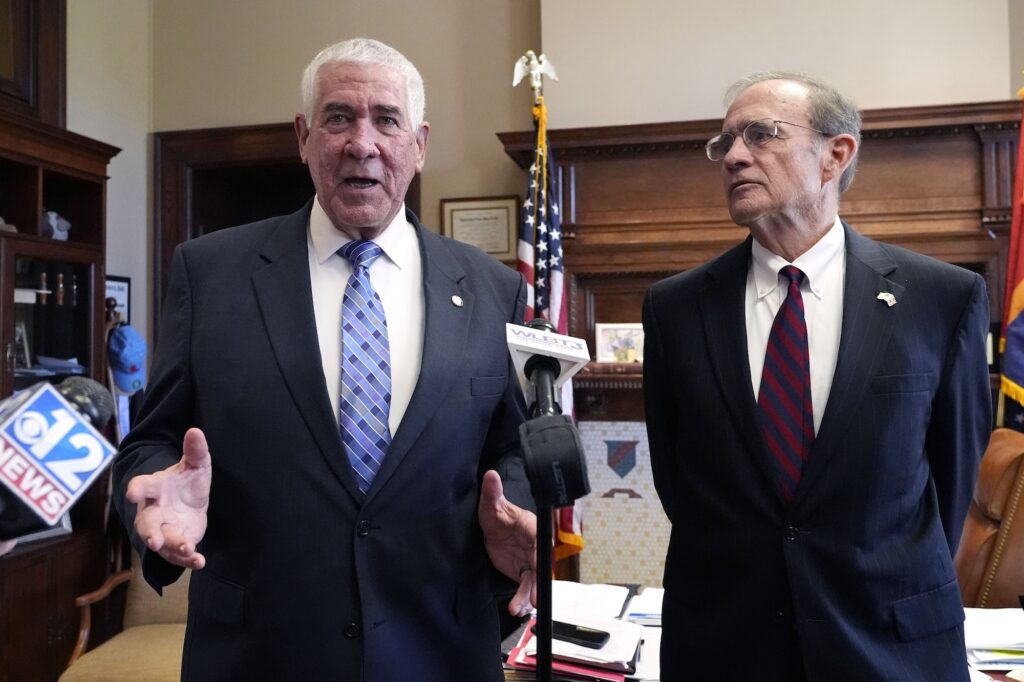Medicaid expansion plans that could cover tens or hundreds of thousands more Mississippians have now passed both the state Senate and House, but with key differences that could affect who is eligible—and whether expanded Medicaid becomes available to anyone.
Unlike the House version, the Senate’s proposal requires the federal government to approve a work-requirement waiver before anyone could benefit and would likely cover fewer than half as many people.
Senate Medicaid Committee Chairman Sen. Kevin Blackwell, R-Southaven, sought to distance his chamber’s expansion plan from former President Barack Obama’s 2010 Patient Protection and Affordable Care Act—the federal law that makes Medicaid expansion possible.
“This bill is not Obamacare expansion. This bill is a very responsible and conservative bill geared toward the working poor,” the senator said before his chamber passed its version of Medicaid expansion on Thursday.
The Senate used the original House bill as the vehicle to pass its Medicaid expansion plan by adopting a strike-all amendment that removed the House bill’s original language and replaced it with the Senate’s plan.
Fewer Qualify Under Senate Bill
Sen. Kevin Blackwell estimates that 80,000 Mississippians would qualify for Medicaid coverage under the Senate’s plan, but said he expects as few as 40,000 may actually enroll—significantly lower than the House’s estimation of up to 200,000 for its version.
One key difference is that the House plan includes full Medicaid expansion under the ACA, allowing residents who make up to 138% of the federal poverty level ($20,120 annually for an individual or $40,056 for a family of four) to qualify.

The Senate plan would only allow people to qualify if they make up to 100% of the federal poverty level ($15,060 per year for a single person or $31,200 for a family of four).
KFF, a San Francisco, Calif.,-based nonprofit organization focused on health-care policy, estimates that the House plan could add up to 123,000 people to the Medicaid rosters, including 74,000 adults who are below the federal poverty level and 49,000 who are above it. Those 49,000 would not qualify under the Senate plan.
People above 100% of the poverty line would have access to subsidized health care plans through the ACA’s federal health care markets under the Senate plan. In states with full Medicaid expansion up to 138% of the federal poverty line, as the original House plan would have implemented in Mississippi, ACA subsidies are not available until income surpasses 138%.
Senate Plan Will Cost State More
Sen. David Blount, D-Hinds, urged his colleagues to vote for amendments to fully expand Medicaid because the state would get millions more from the federal government each year under the House version. The federal government could have given Mississippi $1 billion yearly in each of the 14 years since former President Obama signed the Affordable Care Act, the Democratic senator added.
“The federal government has said to states that expand Medicaid—and that is up to 138% of the federal poverty level, which the strike-all amendment does not do—the federal government will provide for two years a total of approximately $624 million to the state’s general fund,” Blount said on the Senate floor on Thursday.
Under the original House plan, the state would take in over $1 billion in federal funds per year, covering nearly the entire cost of Medicaid expansion. But because the Senate plan does not meet the 138% of the poverty line threshold that the ACA defines as Medicaid expansion, the State would forgo nearly $700 million in federal funds if it became law. The federal government offers to cover 90% of the costs for states that newly expand Medicaid, along with a two-year 5% increase under pandemic relief spending, but the Senate plan would only qualify for the same federal match rate of 77% that the State already receives for regular Medicaid.
Despite the Democratic amendments failing, Mississippi Senate Minority Leader Derrick Simmons said Mississippi is experiencing a “health care crisis” and that the bill would still be an improvement over the present situation, the Associated Press reported.
Stricter Work Requirements Could Prevent Expansion
Both the House and Senate versions include a work requirement, with the House bill requiring a person to work 20 hours per week to become eligible for expanded Medicaid and the Senate bill requiring a person to work 30 hours per week.
In both scenarios, the U.S. Centers for Medicaid and Medicare Services would have to approve the work requirement for it to be enforceable. The original House version said that Medicaid expansion would still take effect even if CMS does not approve a work requirement.
“The goal of the plan is to provide health insurance for working Mississippians,” McGee said last month. “We believe that at least 75-80% of this population is working, so we certainly don’t want to not help them just because we might be helping another population who might not be working or able to work at the time.”

But Sen. Blackwell said his plan in the Senate would not allow Medicaid expansion for anyone if CMS disapproves the work requirement. The Biden administration has repeatedly blocked work requirements in other states.
“We already know that the work requirement will not be accepted by the current administration, which begs the question: What are we doing here?” Sen. Joey Fillingane, R-Sumrall, said on the Senate floor on Thursday.
The plans include some exceptions to the work requirements, including for people with physical and mental disabilities, full-time students, people enrolled in workforce training and caregivers for a child, spouse or parent. Both plans say that if a person voluntarily disenrolls from private insurance, he or she must wait 12 months until they can apply for Medicaid coverage.
Gov. Reeves Opposes Both Plans
Republican Gov. Tate Reeves has made clear that he opposes both the House and Senate Medicaid expansion plans and has threatened to veto any expansion plan that reaches his desk. He complained specifically that the Senate bill provides work exceptions for parents of children under 6 and caregivers “whether they work or not.”
“And the kicker … Anyone who gets a note from a ‘medical professional’ that they are ‘physically, mentally or intellectually’ unable to work are eligible for Medicaid whether they work or not,” he tweeted. “That’s just too broad and would make it too easy to game the system.”
“The Devil is always in the details. And the details prove that this Senate bill is not for the ‘working poor.’ It is welfare expansion to those able-bodied adults that could work but choose not to,” the governor continued. “The Senate bill is still bad policy. And so I will continue to do what I told the voters I would do – fight Obamacare Medicaid Expansion with every ounce of my being!”

If Reeves vetoes Medicaid expansion, the Legislature could override him with a two-thirds vote from both chambers. Both the House and Senate passed their versions of Medicaid expansion with more than two-thirds of members in favor, including a 99-20 vote in the House on Feb. 28 and a 36-16 vote in the Senate on Thursday, March 28.
The bill now heads back to the House for consideration but the two chambers will likely need to work out the changes in conference.










